As humans, we tend to feel lonely and bored at times. But what about the fish?
Do fish feel loneliness or boredom? I have done thorough research on this topic and I’m excited to share the interesting insights I learned from it.
In this article, I will discuss with you the scientific findings, signs of loneliness and boredom in fish, and some tips and tricks to assist them. So without further ado, let’s dive right in!
Do Fish Lonely? Do They Get Bored? Let’s Explore!
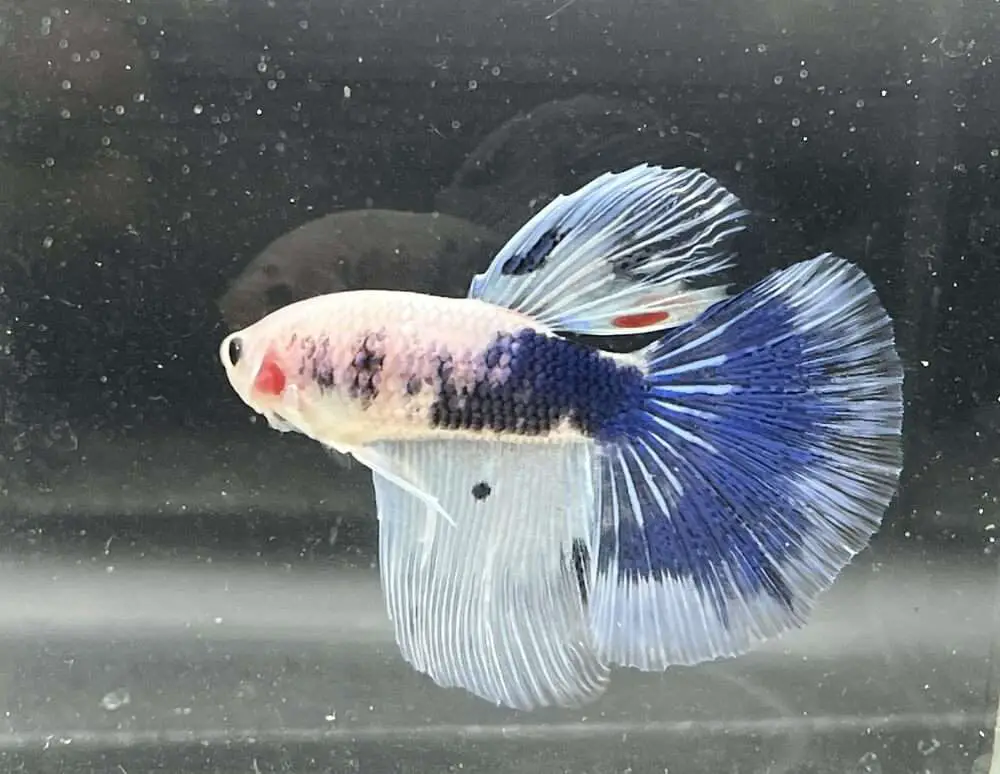
Although research has been conducted on this subject, it is still crucial to remember that fish and people interact and communicate differently. As a result, determining whether or not they experience these feelings to the same degree that we do is challenging.
A study was conducted regarding the play behavior of a cichlid fish called Tropheus duboisi. The researchers found that the fish were engaging in playing activity with a thermometer. This is noteworthy because captive animals tend to play when there is a lack of stimulus or boredom.
However, when the same fish were placed in a large community tank with the thermometer, they stopped playing with it.
The researchers explain that the fish in the community tank were busy with tasks like defending themselves or chasing each other.
Researchers also highlight that the peculiar behavior was observed in the fish only when they were kept isolated in small tanks.
Now let’s take a look at another scientific research:
The effects of loneliness on the brain and behavior were also studied (in zebrafish). Young zebrafish that were isolated from others showed a decreased desire to interact with their peers, according to the study.
Zebrafish are known for being social.
The researchers of this study first separated a few social fish from the tank. And after a few days, the lonely fish were added back to a tank with other fish (again in a social condition).
Interestingly, after the separation phase, the fish that were earlier happy to interact with others and remain social didn’t want to spend time with other fish anymore.
The areas of the brain related to stress and anxiety showed more activity when zebrafish that like being with other fish were kept alone.
Luckily, when given a medicine that helps them feel less anxious, they returned to their usual behavior again.
So overall, this study shows that loneliness does have an impact on the fish. And it’s more likely related to stress and anxiety in fish.
Hence, if you believe your fish is lonely and you can find a suitable fish tank companion for it, go ahead!
What Would Happen If A Fish Is Lonely? [Hint: Stress]
Stress is a state of physical and mental strain caused by different factors. Just like us, fish can experience stress too. In fact, stress is very common in aquarium fish.
Stress in fish can be caused by a variety of things such as changes in water temperature, poor water quality, overfeeding, being in a small or overcrowded tank, and including loneliness.
How does being lonely make fish feel?
Fish are social animals and some species like schooling and shoaling fish need to be in groups to feel secure and safe.
When a fish is lonely, it can feel insecure and stressed.
When they are lonely, they might become more shy, and they might hide more often.
Can loneliness affect the health of fish?
Yes, loneliness can affect the health of fish – especially having an impact on their immune system. Loneliness leads to stress which in turn leads to One of the biggest risks is that stress can weaken their immune system, making them more likely to catch diseases and infections.
A weakened immune system means that they might not be able to fight off infections and diseases as easily as they could if they were healthy.
In addition to a weakened immune system, having a lack of stimulation in the tank can also make fish more lethargic. Lethargic fish might swim less, eat less, or even stop moving altogether.
Most Common Signs To Know Your Fish Is Lonely And Bored
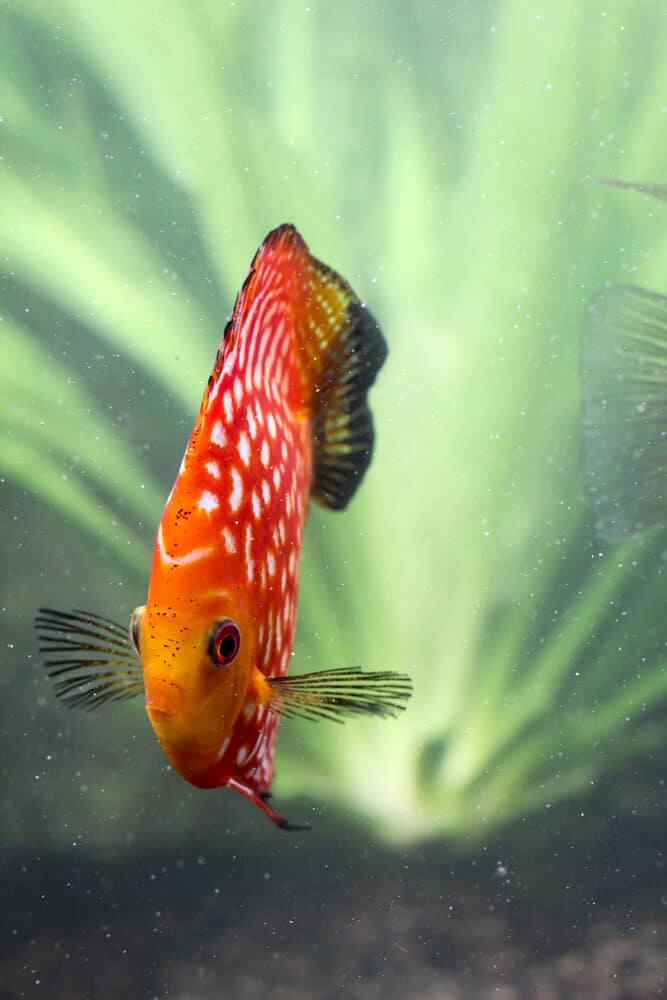
1. Loss of Appetite:
Your fish may lose its appetite if it feels lonely or bored. If your fish, who used to eat well, stops eating suddenly, look for it. Unhappy fish tend to lose their appetite and eat less.
2. Hiding:
If your fish is spending more time hiding behind tank objects, decorations, or plants in its tank than swimming around, it could be a sign of loneliness. Fish that are bored or unhappy will often hide away from the world.
3. Lethargy:
The fish may be bored if it suddenly becomes sluggish and isn’t moving about as much, even if it was previously lively and enthusiastic. Fish that are lonely or sad tend to slow down and stop swimming as often.
4. Glass Surfing:
If your fish is constantly swimming up and down the sides of the tank, it could be a sign of boredom. Fish that are lonely or unhappy often resort to glass surfing to pass the time.
Author’s Take: I remember, in the past, I had a small cichlid. Over time, I saw that it continued swimming up and down in the tank, getting closer to the aquarium glass wall.
At first, I assumed it was merely a play since everything in the tank seemed OK. Yet, it wasn’t until later that I discovered the fish was glass surfing. And I believe it was because he didn’t have enough tank mates to keep him interested and active.
Certain cichlid species do well when kept as schools with other fish of similar kind. Schooling fish develop as a group while staying sociable.
As a result, when individuals are in a group, they feel more pleased and safe. As soon as they are alone, they start having problems such as glass surfing, hiding, being sluggish, or feeling stressed.
Do Fish Get Lonely When Other Fish Die?
Technically speaking, fish may not feel lonely or sad exactly like humans, but they do become stressed when their environment changes.
Let’s first examine the reasons why fish don’t feel human emotions like loneliness or grief. The thing is: fish lack the mental capacity to experience feelings of this kind. They likely lack the sophisticated neural network and complex structures as seen in human brains. This implies that they lack the cognitive and emotional abilities that humans possess.
Fish, however, are susceptible to stress when their environment suddenly changes.
Changes in water temperature or pH level, for example, might be too much for them to handle. This might cause them to experience tension. The loss of a tank mate may produce feelings of insecurity and thus would lead to stress.
And fish under stress may show a wide variety of signs. Symptoms include fatigue, loss of appetite, and weakened resistance to illness. Fish are more susceptible to sickness and even death because their immune systems are compromised by stress.
So, it’s essential to recognize the necessary signs so that you can help your fish before it’s too late.
One fish’s death might cause stress to its companion fish. This is particularly true if the fish were part of a school, shoal, or even were a pair for long. These fish are social creatures that thrive in schools or groups and may be shocked by the loss of a group member.
Let’s take a brief look at the indicators of stress in fish tanks:
- A state of fatigue or lethargy
- Appetite loss
- At the water’s surface, struggling for breath
- hiding or being still
- The gills moving too quickly.
- Lightened or discolored skin
In the event that you see any of these symptoms, prompt action is required. Make sure the water in the tank is clean and healthy for the fish. Changing the water or adding filters might be necessary.
Making the aquarium more engaging for your fish may also be accomplished by adding some plants or tank decorations.
In a nutshell, a fish’s friend may feel lonely after its death, but this is not due to sadness or any other emotion. Most likely, they are stressed and displaying stress symptoms like tiredness or lack of appetite because they are unable to adjust to the new sense of insecurity brought on by the absence of the fish.
Should you worry if one of the fish dies? Well, if the fish was just one of the community fish and other tank mates didn’t form a close group with it, then there shouldn’t be any major impact on other fish in the tank.
Of course, you must check the tank for any disease transmission and clean or change the water as required.
If the dead fish was part of a pair or school, it’s best to replace it with another fish of the same species to prevent the remaining fish from becoming stressed or lonely.
Loneliness And Boredom In Fish
Fish That Are More Likely To Feel Boredom And Loneliness:
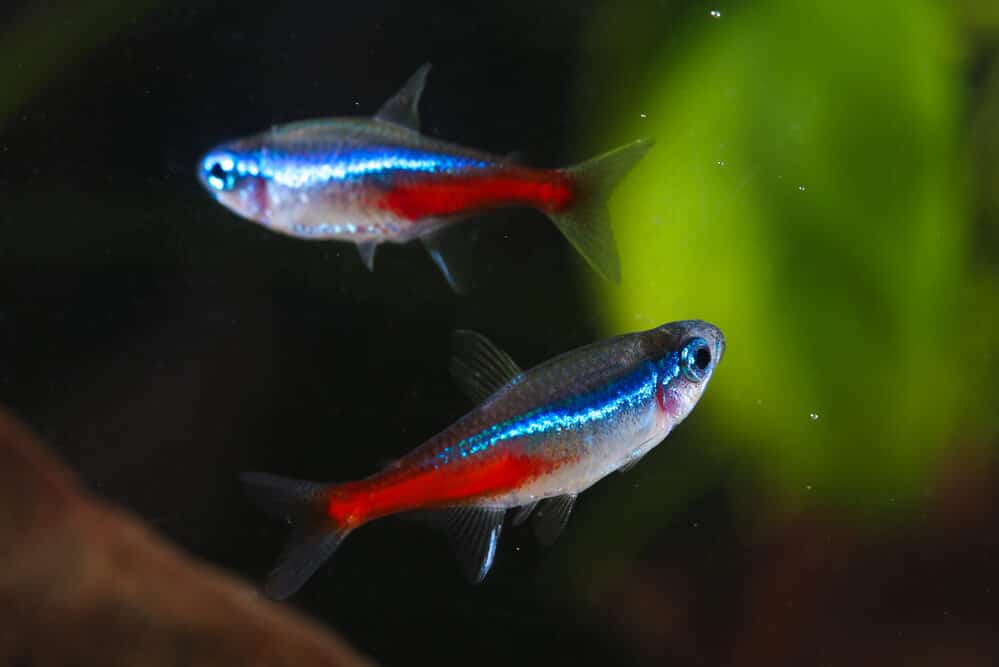
Schooling fish and shoaling fish are two different types of fish that are commonly found in groups. Schooling fish swim together in a highly coordinated manner, while shoaling fish simply swim together – but not in a much coordinated way.
And usually, schooling and shoaling fish are the ones that are more likely to feel lonely and boredom.
Why? Because they have evolved, remaining together with fish of the same species. So they are much more habituated to living with others of their kind than to living alone.
Common examples of schooling fish include neon tetras and that of a shoaling fish include mollies and guppies.
Fish That Are Less Likely To Feel Boredom And Loneliness – Because They Prefer Living Alone:
While most fish are social creatures, some species are more solitary. These fish tend to be more aggressive and territorial and do not need the company of others to thrive. One of the most common examples of such include the betta.
Do Betta Fish Feel Lonely Or Boredom?
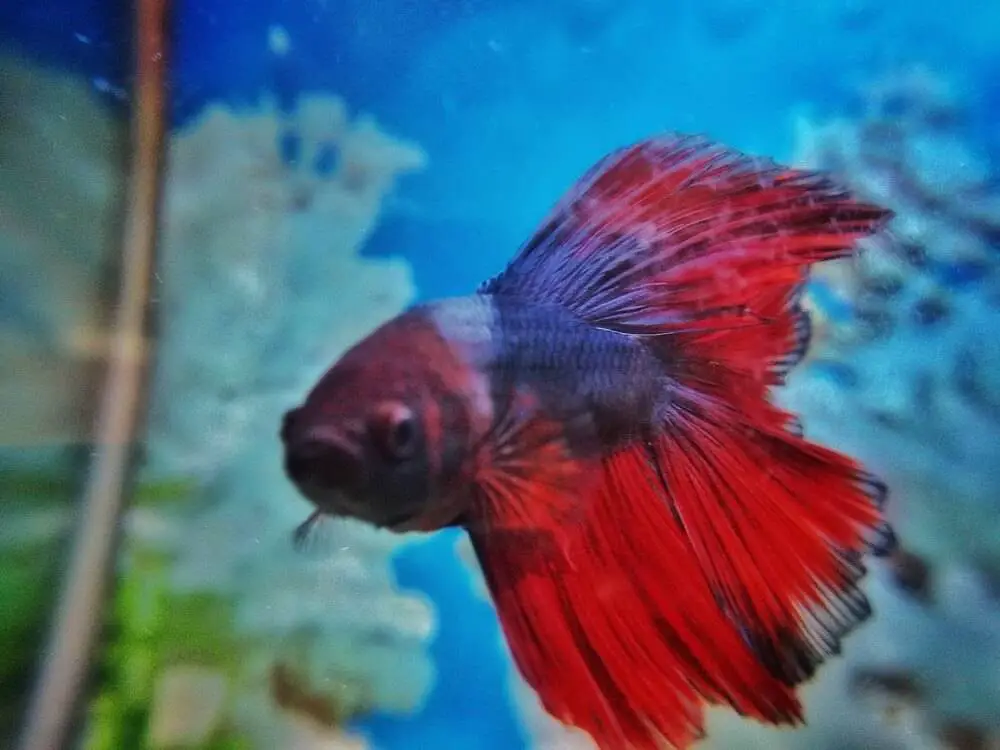
I love keeping betta fish in my fish tank! I’ve tried having just one betta fish in the tank, and I’ve tried keeping betta fish with other fish friends like guppies and also with zebra danios.
You probably know, however, that betta fish can be rather aggressive. They do well in their own tank by themselves.
They sometimes form peaceful schools, but as a general rule, you should expect them to be fighting with the other fish in your aquarium. So, they should be left alone to thrive in peace.
Even though they’re alone in their tank, betta fish usually don’t feel lonely. In the wild, they live alone too!
But, sometimes they can get bored and show signs of being tired or stressed. If you see your betta fish acting like this, don’t worry!
You can help them by adding things to their tank to make them happier. Maybe some plants or decorations or change their feeding routine. There are so many ways to make your fish happy and healthy!
How To Fix Boredom In Fish: Sure Shot Tips And Tricks
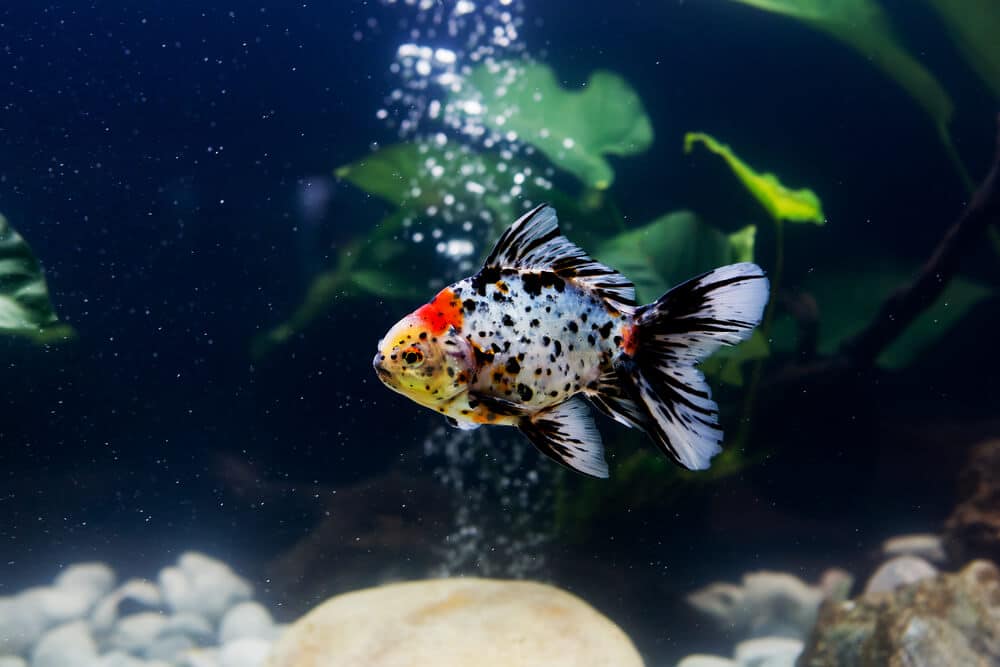
1. Use a bubbler/air stone.
Adding an air bubbler to the tank is a simple technique to keep fish from becoming bored. These gadgets generate bubbles in the water, pique the fish’s interest, and tempt them to play in and around the bubbles and the current.
For a more natural and intriguing water flow, position the air bubbler or air stone towards the tank’s bottom. The rising of the bubbles may provide hours of amusement for both you and your fish.
2. Provide some fun hiding spots in the tank
Fish love to explore their surroundings, and having intriguing hiding spots in the tank may create a pleasant and engaging experience for them.
Fish will like having places to hide, so provide the aquarium with fake tree logs, caverns, and tunnels. The fish may enter at one end, have a break inside, and then exit at the other end of the decoration. This not only gives the fish something new to look at, but also makes them feel safe.
I would say that anything in the shape of a tunnel would work well, because I have tried it myself in our home fish tank. Your fish will enjoy swimming through the toy tunnel, and viewers will enjoy seeing the lovely fish in the aquarium.
3. Put some real plants in the aquarium
Live plants beautify the aquarium and delight and stimulate your fish.
Fish like swimming in and among living plants, and this gives them a more natural habitat. Plants also absorb unwanted chemicals from the tank and increase oxygen levels, making the water safer for your fish. Make sure you choose plants that won’t be harmful to your fish.
4. Put some fun stuff in the fish tank.
Fish enjoy exploring their surroundings. Keeping their tank stocked with fun items may give much-needed stimulation and keep them from becoming bored.
A common fish toy is a ping pong ball. To entertain your fish, simply toss a ping pong ball into the water and watch as they chase after it. Your fish will be stimulated as they act to play and investigate their environment.
5. Shake up their current setting a bit
Fish might become bored if they’re kept in the same tank all the time. Altering the aquarium’s layout or adding new decorations might give your fish something to do and look at. Just avoid mess with the filtration system or the tank’s other vital components in the tank.
Wrapping Up
While it is difficult to say for certain if fish sense loneliness and boredom in the same manner as humans, studies have revealed that fish definitely feel the impacts of isolation. Loneliness can cause anxiety, a compromised immune system, and lethargic behavior.
Fish that live in groups like a school or shoal are more prone to experience feelings of isolation and boredom than other fish. Fish, however, can be kept from becoming bored by providing them with hiding places, plants, and novel objects to interact with in their aquarium.
It’s crucial to keep an eye out for indicators of stress in your fish and take corrective measures to ensure their continued health and happiness.
What’s next? Well, just take a thorough look at your fish. Get some finned buddies of the same species if you believe it’s a schooling or shoaling fish. And if you just have one fish (like a betta) in the tank, you can try to make its environment more appealing by adding some air stone or other interesting decoration.
FAQs:
1. Do Fish Get Lonely On Their Own?
In short, fish do get lonely on their own but that depends on the type of fish. Some fish like bettas tend to be very territorial and have the habit of living alone in their space – so they may not feel lonely compared to a social, schooling fish like neon tetra or zebrafish.
2. Can A Fish Die From Loneliness?
Loneliness doesn’t cause a fish to die, rather the stress that results from loneliness. So if a fish is lonely yet happy and healthy, then there are very less chances of dying.
3. Do Fish Feel Sadness?
Fish can feel sadness but a better way to describe that would be stress. Whenever there is a change in their environment which the fish can’t cope up with, they tend to go in stress. Being lethargic, hiding more often, and loss of appetite are some of the common signs of a sad fish or a fish in stress.
4. Do Fish Get Sad When They Are In A Tank?
If the tank is big enough and all the necessary conditions for a fish to thrive well are fulfilled, they shouldn’t be sad (technically sadness in fish is more like stress). Fish are in stress when they are kept in a small and overcrowded tank with poor water conditions. However, if they are fed well and kept in a spacious, well-maintained tank, they shouldn’t have any issues.
Hi! I’m Praveen Ghoshal, the founder of eFishkeeping.com. Inspired by my Dad, I got interested in fishkeeping when I was a kid. Since then, I have been involved with this hobby. Currently, I have 3 fish tanks at our home, and I enjoy this hobby with my full family. Read more about me here.

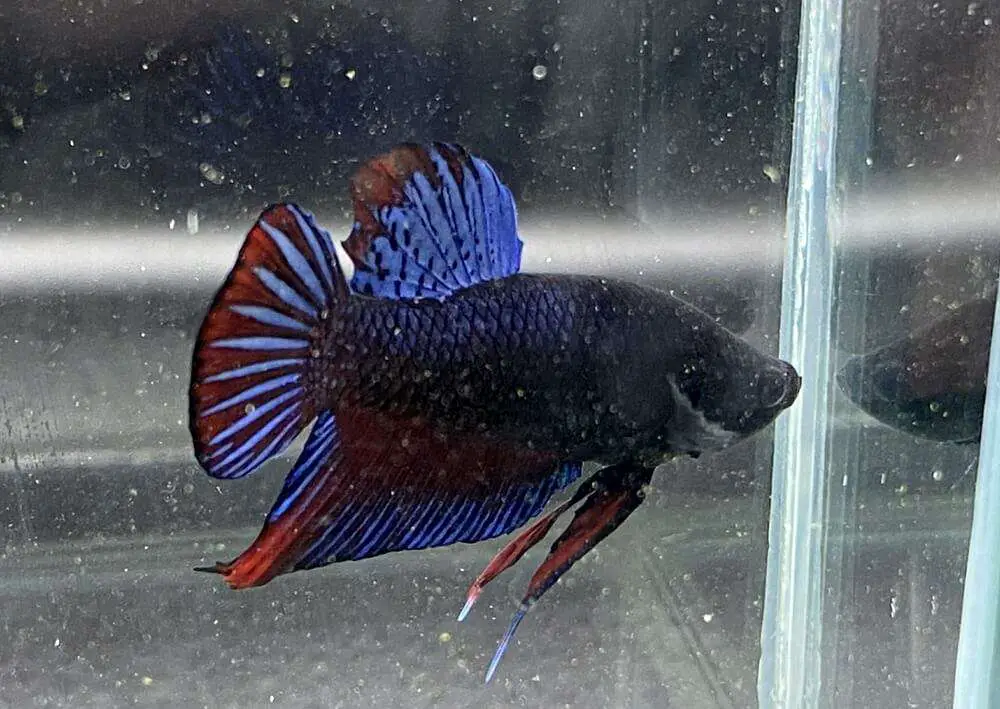


![Do Neon Tetras Die Easily? [Here’s The Truth!] do-neon-tetras-die-easily](https://efishkeeping.com/wp-content/uploads/2023/03/do-neon-tetras-die-easily-300x200.jpg)


